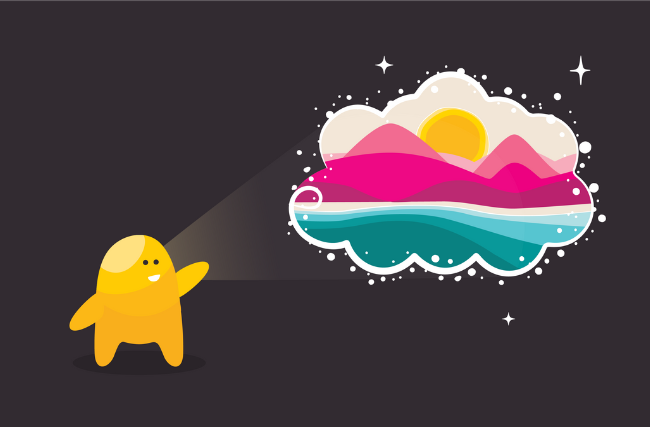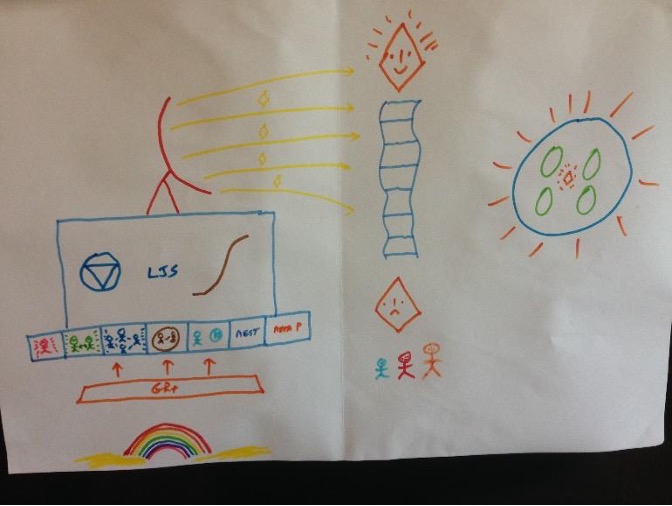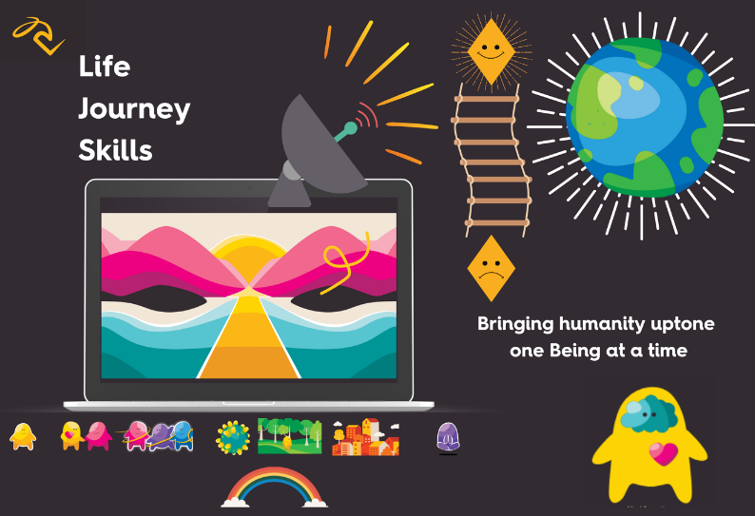No products in the cart.
Motivation
How to Draw Your Way to a Life You’ll Love
“Imagination is more important than knowledge.” ~Albert Einstein
We all know the basic script we are encouraged to follow in life—work hard at school, then go to university or get a good job. Conform and fit in and everything will be fine.
I did well at the first part; however, by my early twenties, the “everything will be fine” bit wasn’t happening for me. Far from it. I had been prepared for a “basic script” life, but I wasn’t happy by any means, and I couldn’t figure out what was wrong.
When I left school in the UK, before going to university, I drove an old Bedford van with some friends from London to Turkey. It was a pretty wild trip. We met others on the road who were returning from Afghanistan, India, and Asia. I was enthralled by the stories they shared and remember thinking to myself, “That sounds like living. That’s what I what I want to do.”
I returned to the UK and started university in Edinburgh; however, a burning desire to complete the travel that I dreamed of developed. Some friends and I bought an old Land Rover and spent every spare minute refurbishing it in a friend’s garage. We made a pact to spend a year driving overland from the UK to Australia, despite the voiced opposition from well-meaning parents. As soon as we graduated, and after a year of work to earn enough money, we hit the road.
I was fascinated by the people we met and the variety of cultures and spiritual traditions we encountered as we traveled across Europe, the Middle East, India and Nepal, Asia, and then Australia. It sparked a lifelong interest and study of people, history, religion, and the gnostic wisdom that sits behind every religion.
I met a kindred spirit In Australia, who became my life partner, and we both had a similar longing to live life on our own terms.
We decided to embark on a journey of self-development together. We traveled extensively, studied yoga in Sri Lanka, and learned to meditate with Tibetan monks. We read countless books and attended every self-development workshop we could. It was an amazing time in our lives.
I realized that, although I understood the principles of the physical world from my engineering degree, I was clueless about the unseen, metaphysical world. The inner realm of thoughts, emotions, values, and beliefs were a complete mystery to me. As was the world of quantum physics and the consciousness of the universe.
No one taught me any of that at school, and I’m pretty sure it is the same for you. I tackled this gap in my knowledge by applying my analytical engineering skills to the study of metaphysics, which is how I became known as a metaphysical engineer—someone who makes the complex unseen world easy to understand and navigate.
We settled in Australia and started a family, so I began to build a career in the corporate world. As a senior manager in the oil and gas then the computer industries, I was challenged with managing teams of people of whom peak performance was expected, with zero training budget.
Out of sheer necessity, I began to coach my teams using the self-development principles I had learned to see if they could help us achieve our business goals. It worked and, in fact, we far exceeded our targets many times over. Other managers approached me to train their teams once they saw the success we were having.
I realized then that empowering people was my real passion. I loved coaching people, and I was good at it. I made the decision to quit corporate life and build my own mentoring and coaching business.
While upskilling for this new chapter in my life, I attended a course where the facilitator recounted an experience she’d had while running a workshop on the long-term future of Australia’s Barrier Reef.
There were many vested interests represented in the room, many arguments, and no agreements. Then an Aboriginal Elder walked quietly to the front of the room and drew a picture that linked the various interests into one vision. The facilitator recalled that the ensuing energy in the room was incredible as the group began to discuss how the vision could be achieved.
Something clicked for me that day. I had heard the phrase “a picture paints a thousand words,” but I had never thought about a life or business in terms of a graphical vision.
I returned home and drew my vision for my life—a map of the world for my new mentoring and coaching business, as I envisioned it as a global business. I stared at my vision every day and drew on my knowledge of physical and metaphysical principles to make my vision a reality.
Over the next twenty-eight years, I was invited to work in thirty countries across five continents in hundreds of organizations, empowering thousands of people. My simple drawing became a reality.
In my study of metaphysics, I had learned that a vision has an energetic pulling power that attracts the events, people, and coincidences that bring the vision into the physical world. The key skill of developing a graphical vision of future success became a hallmark of my workshops in business and government.
In 2017, I decided to condense my learnings into a toolkit that anyone could access globally. I drew this vision below of empowering people around the world with an online program.
As you can see, you don’t need to be Picasso; a simple drawing of your vision will do. The second image of my vision was created by a colleague using Canva. So you don’t need to be a graphic design expert either to create a vision!
The key is to place your vision where you’ll see it every day as a visual reminder. It will motivate you like nothing else can. I am astounded at the people, events, and circumstances that continue to show up to help bring my Life Journey Skills program vision into reality.
That’s not to say everything has come easily to me. This isn’t a magic bullet. We still need to put in the work. We’ll still face obstacles. We’ll still need to push through phases of difficulty and uncertainty. But a graphical life vision can help us believe in our vision and stay committed to the path of bringing it to life.
My uncle was a keen sailor, and my mother suffered from seasickness. He said to me when I was young, “David, if we are out sailing in rough water and you feel queasy, don’t look at the bottom of the boat or at the waves. That makes you feel worse. Just look at the horizon. Why? Because it’s your stable reference point.”
When the waves of life are getting a bit rough and we’re feeling queasy about life, a stable reference point can steady us and give us the strength to go on. It can keep us less focused on what we don’t want—all the struggles we’re currently facing and all the worst-case scenarios we imagine for the future—and more focused on what we do want. And that’s the key to staying the course so that we bring our vision to life.
My advice to you is to have a go at creating a graphical life vision. Block out the ”shoulds,” rewrite the script, and live your life the way you want to live it.
Be bold, be brave, and go for it!
—
Click here to access David’s FREE mini course, Win at Life. In this short program, David draws on the laws of physics and metaphysics to help you navigate challenges and find your way to a more fulfilling life.
Thank you to Golden Thread Media, this month’s site sponsor, for this wonderful free offer!
About David Powell
David Powell is an international author, life skills mentor and executive facilitator. He was the recipient of The Visioneers’ 2022 global award for his work benefiting humanity. David has helped empower individuals and teams in thirty countries across five continents. His graphical vision tools and Life Journey Skills concepts have been implemented by some of the world’s leading organizations.
See a typo or inaccuracy? Please contact us so we can fix it!




